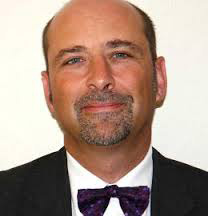The Montefiore Hospital: Migraine – not just a bad headache
During September, support groups are raising awareness of migraine which, according to the charity Migraine Action, affects one in seven people in the UK. We asked Consultant Neurologist Dr. Angus Nisbet from the Montefiore Hospital to tell us more about the condition.

What is a migraine?
A migraine is a specific medical condition that can be extremely debilitating for those who are affected. As well as severe pain, sufferers can feel sick, dizzy and have disturbed vision. These symptoms can last from several hours to several days.
How can you tell it’s a migraine and not a headache?
A key indicator to differentiate headaches and migraines is where the pain occurs. The pain of a headache is experienced in both sides of the head, whereas a migraine is usually felt intensely on one side.
What are the symptoms?
Often there will be tell-tale signs before the onset of a migraine, such as a change of mood, lack of appetite, and a shortage of energy and motivation. This stage may be followed by flashing lights, difficulty with balance and trouble focusing.
When the pain comes it is usually felt as a strong throbbing sensation in one side of your head and can last for a day or two. You may also feel dizzy and sick and will find it very difficult to carry on with your daily routine.
Once the worst of the pain passes, you will probably feel exhausted and need to sleep – some say sleeping off a migraine is the best medicine.
What causes migraines?
We don’t really know what causes the onset of a migraine. Some people are more prone to attacks when they are stressed or very tired, while others have dietary triggers – common culprits are chocolate, large amounts of caffeine and foods containing the artificial sweetener aspartame. Bright or flashing lights and too much time at a computer screen may also trigger a migraine in some people.
Is there anything migraine sufferers can do?
It is a good idea to keep a log of when your migraines occur and what may have potentially caused them, which may help you to avoid your triggers. However, if you are experiencing migraines regularly you should seek medical advice. According to Migraine Action, 60 per cent of sufferers do not ask for help because they believe there is no treatment, but this is not the case – treatments are available and new medication is continually being developed.
Dr Nisbet is a consultant neurologist at the Montefiore Hospital.
He offers treatments to manage a wide range of neurological conditions including migraine, epilepsy, multiple sclerosis and movement disorders. For further information please contact the Montefiore Hospital on 01273 828120 or visit www.themontefiorehospital.co.uk





















